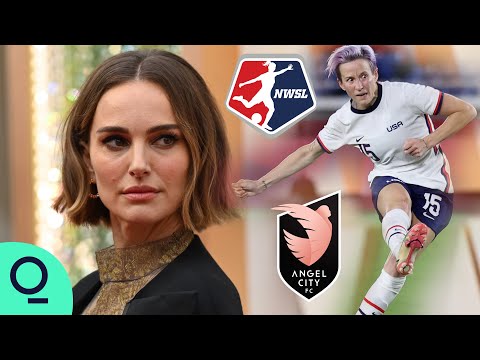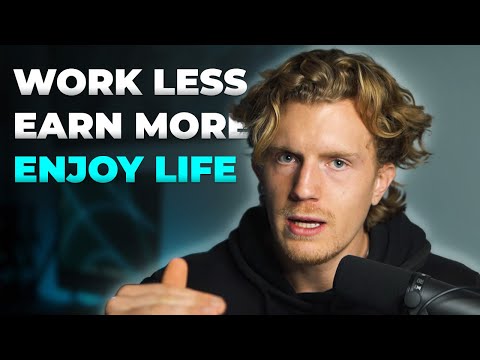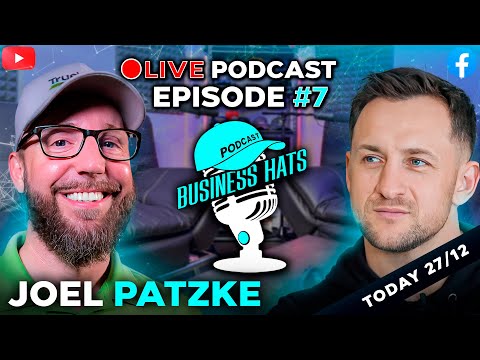The Business Case for Investing in Women’s Sports

It's no secret there's lots of money to be made owning a sports team. Media deals and fan enthusiasm soaring, it's been really hard not to make money. Now, with more cash than ever vying for a place in pro sports and a reckoning around equality and opportunity underway, the biggest payday may be on the women's side of the game.
Alex Morgan! I look at the women's sports market similar to venture. There's a lot more upside. Woo! How'd that go in? Female athletes and fans have been trailblazing this change for generations. Historically, and more recently, it's been a painful process as women fight institutions and systems seemingly designed to diminish and, even at times, abuse them. It's not just a basic issue of right and wrong, but also a question about power and money, and the conversation around how to invest in women's sports and who is writing the checks has taken on a different urgency and dimension, perhaps leading to a new and very lucrative era of opportunity. Imagine if you had a chance to go back in time and by the Boston Celtics in 1957.
If you make the investment now, given how low franchise prices are, I would expect, in 20, 25 years, your investment's gonna be worth, you know, many, many times what you just paid for it. So, we're here in Los Angeles, on a freeway, naturally. This is one of the great sports towns, some of the most notable franchises across all sports.
You think about the Lakers, you think about the Dodgers. Everyone seems, though, to be talking about the newest team on the scene, and that's Angel City. The Women's soccer team is coming to Los Angeles, all thanks to Natalle Portman. Angel City FC is the product of actress and activist Natalle Portman and Kara Nortman, a partner at an early stage investment firm. They made headlines last year when they announced plans to bring in national women's soccer league team to LA. Their star-studded list of investors includes Jennifer Garner, Jessica Chastain, America Ferrera, Uzo Aduba, and Eva Longoria.
The leading founding investor is Alexis Ohanian. He's the co-founder of Reddit, and, of course, the husband to Serena Williams. Their toddler daughter, Alexis Olympia Ohanian, is also an investor. They brought in a third co-founder to run the team, a veteran of building businesses. Her name is Julie Uhrman, and right now, she's still building out their office space. So, this is a real startup.
I mean, we're still waiting for Fiverr. Hi! How are you? Good to see you! Yeah, this is the future home of Angel City. So, we've got two big conference rooms here. Then we'll call this the bullpen, for lack of a better term right now.
I have to start using more soccer references than other sports. What's really neat with this blank wall is we'll have a projector so we can project games on the wall, but we're gonna have pull-down, so we'll have a pull down green screen, pull down widescreen, and a pull-down step and repeat so that we can do content shoots here, merch shoots here. When we have player signings, we can just create the atmosphere here. Uhrman's a native Angelino who came up through media and technology and has a knack for getting into businesses at points of inflection.
I was an entrepreneur in college. My stepfather was an entrepreneur. You know, he taught us two things growing up. The first was work for yourself and be in control of your own destiny, and, if you can't work for yourself, be on the revenue side of the business.
While valuations have continued to rise in a lot of sports, this is a tough business in many ways, and it's an especially tough business when it comes to professional women's sports. This is not for the faint of heart, in many ways. Over 90% of all sports teams globally don't make money, and so, we looked at all this information and said, "We're female founders, that's different. We're gonna raise money like it's a startup, which is different. We're gonna drive to profitability 'cause if we can show we can make money being different in those other ways, that's gonna be pretty significant."
Julie Uhrman sent me a LinkedIn message, and was just like, "Hey, I hear you're the woman to talk to in sponsorship, and I'd love to talk to you about an idea." This is Jess Smith. She's the head of revenue for Angel City, and her idea was to blend Angel City's goal of profit with social impact. I put together a business proposal for her, and said, "Hey, this is how I think you should go to market," and it was really that, if you're gonna walk in a room and tell people that you're standing for change, how do you hold yourself accountable, and also, the partner accountable, and really, the way to do that is through dollars. When we started talking to brands, we also launched the Angel City sponsorship model, where we give 10% of our sponsorship dollars back into the community through our social impact platform. So, when Angel City sells their front of kit sponsorship to Door Dash, 10% of that sale goes to combating food insecurity in Los Angeles.
This purpose driven advertising has helped to attract the likes of Birdies, Heineken, Tecate, and Gatorade. We said from the beginning we wanted to build an organization where mission to capital could coexist, so what does that mean? It means that we want to set higher expectations. What does that mean, right? It means that we lead with passion and purpose to drive to profitability, and that is the key sentence that we make decisions based on every single day.
Recently though, Angel City's impact in the world of sports would take on an added importance. The national women's soccer league faces a reckoning overcharges that it ignored abuse of its players. Former NWSL players have accused former coach Paul Riley of sexual coercion. A stark reminder of just how backwards and broken parts of the system are came in late September, when The Athletic published an investigation detailing allegations of sexual misconduct, including harassment and coerced sex. It also detailed how earlier accusations weren't fully investigated or disciplined by the league. Our institution failed us, the system, right? It's the people in power, not just the coach, but the leadership team.
Paul Riley couldn't be reached for comment, and has denied the allegations. The league suspended play for the weekend after The Athletic report published, and forced the resignation of the commissioner, Lisa Baird. She said in a statement that she takes full responsibility for her role in the allegations and is sorry for the pain many are feeling. Social media was filled with indignation and anger, including from Megan Rapinoe, who tweeted, quote, burn it all down. Let all their heads roll.
I hope we're in a real moment of reckoning where we can turn this into real change and hopefully save the league, 'cause, as it stands right now, that's not really league any of us wanna be a part of. Angel City may be part of that change. Sinead Farrelly whose allegations of long-term abuse were detailed in The Athletic cited Angel City as part of her inspiration to go public. I think I started reading the article at 5:15 in the morning, Pacific time, and I don't think I've ever done this, but I was in and out of tears all day. This is Angela Hucles, a two time gold medalist for US soccer and founding investor for Angel City.
This is something that affects all of us. It doesn't just affect the soccer community. This is something that we are struggling with in our society and the world, and this is something that we need to get right. US Soccer Federation which governs the NWSL retained former deputy attorney general Sally Yates to lead an investigation into the league as it hopes to rebuild its trust with players. For me, and, I think, our organization and that we're continuing to do on the daily its to make sure that we are moving forward and providing a better environment and a place that is stronger than it's ever been before, to make sure that these women can play, and be celebrated, and feel safe, and that's not an unacceptable thing to ask for. The harsh reality for the NWSL is not only does it need to regain the support and trust of its players, but it will also need time to develop its fan and sponsor base.
And if it's looking for a role model, look no further than the WNBA. Reiner finds Taurasi at three! It's gone! She got it! The GOAT delivers again! At 25 years old, the league is one of the oldest, most well-known, and most successful women's sports leagues in the world. And its stars are getting more attention than ever. Whether it's from activism efforts around the league, or more blue chip advertisers featuring them in commercials.
I sold a car to Sue Bird. 11 all-star appearances. Can you imagine? I mean, I'm working on it. But if you measure the WNBA against the NBA, it's still a massive gap. Attendance for the NBA averages more than 17,000 a game, while the WNBA averages between six and 7,000, and estimates of the combined revenue for the NBA, it's about $7.9 billion
versus the WNBA at 60 million. I think the big issue people have with women's sports is that, relative to men's sports, it's a lot smaller. This is David Berry.
He's a professor who's written extensively about the economics of sports, especially women's sports, and he argues that the biggest factor between men and women's leagues is time. WNBA is smaller because it's only 25 years old, and, if you look at the NBA when it was 25 years old, it looks a lot like the WNBA today. The NBA back in the late 1960s was getting about six, 7,000 fans a game. Nobody really paid much attention to the league, and, in 25, 30 years, WNBA's gonna look a lot like the NBA.
As David explains, this decades long growth has been true in almost all pro sports. It usually takes generations to develop emotional attachment to teams. Take the Pittsburgh Steelers who were purchased by Art Rooney in 1933 for a whopping $53,000 in today's dollars. Art Rooney is investing in a sports league where 85 to 90% of the previous franchises completely went out of business, but he does it anyways. He loves football, so he puts his money into this thing.
For 40 years, Rooney kept putting money into a Steelers franchise that won nothing. They went to one playoff game at 40 years, and, in that playoff game, they scored no points. He never saw a playoff point for 40 years, and he kept putting money into it. Eventually, a fan base develops, people become emotionally attached to it, and the Steelers that are inherited by his grandson are worth a billion dollars.
And nearly two decades later, Art Rooney II's franchise is worth $3.4 billion. Ownership is an area Angel City thinks it can improve on. Instead of having its future rest on the shoulders of one owner, it instead has a diversified ownership across a large group, including an all-star list of former players.
We're but budding seeds, except, this time, we're owners! It started in an email, really. Julie Foudy, Mia Hamm sent to the rest of some of the players about this opportunity to invest in Angel City and bringing women's professional soccer to Los Angeles. I think it was probably the quickest response that I've seen from about, you know, 10 women. And that ownership group would only grow.
We have over 60 owners. They're all incredible. They all bring something different to the platform. I was telling someone the other day that I literally don't think there is an owner that hasn't done something for Angel City. The story I've told in some rooms about that is being in a sponsorship pitch, talking to a beer brand, and a gentleman's in the room.
He says, "Hey, I'm from the lifestyle side of the brand, and, candidly, I don't follow sports, but I have to tell you, I know everything about Angel City because I follow Sophia Bush," and what's really incredible about our ownership group, when you think about the power of Angel City, is that each one of them has their own audience, and each one of them are sharing things about us and aligning with us on things that they're passionate about. And the expectation, when they invested in Angel City, was you have to care about the purpose and you have to be available to help us, you know, grow the business, and have a positive impact on our community, and everybody signed up for that. But beyond passion for owners, for more money to continue to flow into women's sports, it's going to need more evidence that it can be successful, and, for investors, that means data. Everyone's heard of the money ball effect.
You know, we're increasingly using data to help our players get the most out of their careers, out of their performance, and, on the business side of sports, unfortunately, there's been a lot of just, "Hey, that's how we've always done business." Angela Ruggiero has played more games in a USA hockey Jersey than any man or woman, winning gold, silver, and bronze medals. After her career on the ice, she got an MBA at Harvard and set up Sports Innovation Lab. It's a Boston based company that uses data science to help teams and leagues understand their fans and figure out how to better engage them, and, to be clear, to help them find new ways to make revenue off them. We watch sports differently.
I watch sports differently. Half the time, I have my second screen in my hand, I'm flipping through scores, checking out highlights, got my red zone, maybe I'm on Twitch over here. Where we're doing things very differently. We're all shifting in how we consume, contribute to sports, create content, interact with athletes, model shifting overnight.
In the early days of the sports industry, you had a very localized fan, so ticket sales were really the biggest proponent of revenue. Then, as you start to move into the 1940s and 50s, you have the advent of broadcast media that allows for fans to start following more than just their local team, and that also starts to translate into them becoming more consumers of sports, so they start buying. You start seeing merchandising and sponsorship opportunities start to really take off. And now what we've really moved into in this digital age, with the advent of the internet, of smartphones, of social media, we're moving into what we call the age of the fluid fan.
And they believe that, just as the advent of television helped fuel new areas of revenue in the age of the global fan, new technology and social platforms will do the same in the age of the fluid fan. We see an evolving media landscape where all fans want more than just the game. Now they want more online, they wanna understand the athletes, they want that Netflix docuseries, but fans of women's sports, per the fan project data, suggests that they want it more. In a report published earlier this year, SIL outlines how fans of women's sports are ahead of the curve when it comes to how technology is changing fandom. You can't be a lazy women's sports fan.
You can't just turn on the game, you can't just find your content wherever you want. We've almost forced the hand of this market to be digitally savvy. We forced the hand of this market to behave in ways, maybe they were uncomfortable, but they got over that hurdle and they were the first to do it. What that gives us is this incredible group of what we call early adopters, and this has been used in other industries before.
Sometimes, they're called hyper users. When I was at Spotify, we called them trendsetters, but essentially, what you need to understand about early adopters is that, typically, they will only represent one to 10% of a given fan base. They can represent as much as 50 to 80% of the revenue potential that you can drive. And while there's potentially a lot of money to be made in understanding the behavior of women's sports fans, the report also made clear there's a big opportunity in women's sports themselves. In our analysis, we looked at a number of sources that predicted the global sports business market would be around 800 billion by 2030.
We believe, if we invest in women's sports now, the opportunity for women's sports could be a third of that $800 billion market. In its report, SIL proposes what it calls a community-based monetization model. It outlines how women's sports can capitalize on this shifting fan behavior by producing more story-driven content, distributing it on new, emerging platforms, and measuring quality of engagement over quantity. You have to approach this market with a focus on it's a different fan. Don't just take the same model, do it differently, build out your revenue in new ways, and that actually is gonna unlock, in our opinion, not just a better ROI, better return, but also it's where the puck is headed, if I can use a hockey analogy.
You've actually created a market of your future consumer. That's your current fan of women's sports. They're already there. Angel City won't play any games here at Bank of California Stadium until the spring of 2022, and while they have good financial backing and have made early sponsorship deals, they're still going to need to attract fans, and the best path to that is through their players. We think fandom has really changed, and it's changed, mostly, because of social media, where I'm a fan of the player first, their team second, and then the league third, and so, when you think about the asset that is most valuable to you being your 22, 24 person roster, the way that I can create a connection with that player that can then translate to the club and then allow us the ability to monetize is to tell the story of who that player is. Good morning, Angel City fans.
I am so excited to be coming home. I hope to see you soon! And, for Angel City, they needed a star, and it's hard to find a better option than LA's own Christen Press. And Press, there it is! The moment they've been waiting for! A native of Southern California, she's Angel City's first and currently only player on the roster, and before Angel City plays any games on the pitch, they'll rely on Press to help build awareness.
That's especially important for a new team in a nine-year-old circuit that's the third try at a US pro women's soccer league. I may not know there's an NWSL. I may not know there's a national women's soccer league, but I know there's an Alex Morgan, I know Megan Rapinoe, I know Christen press, and when I start to follow them, then I find out, Oh, wait, they play for the Orlando Pride, or they are soon to play for Angel City. Angel City will need a roster full of name recognition like Press to drive interest to their team. That has been the theory on the NWSL from its inception, to connect the popularity and historic success of the US Women's National Team to a more traditional league.
But at a time when player trust in that league is being challenged, Angel City is attempting to help provide support for all women's soccer players, both future and past. They've been producing a profile series around young talent in the LA area, and recently announced a plan to create a players fund so the retiring professional players can receive money for education in their post-career life. There is a huge gap right now from the time that you retire to the time that you are entering into your next career path, so that's one of the things and ways that we like to think about player care, is, you know, looking at that player holistically, and it's not just about the time that they're playing in the league, but it's, you know, what are they doing afterwards, and how can we help to foster and connect that community as well? It's an acknowledgement that while the early returns look good for Angel City, this is a long-term investment in the sport, and that they're committed, not only, to fielding a successful team, but building a successful sports ecosystem. One that goes beyond their team or even the current league. Our aspiration is to be a global brand, and it's been our aspiration from day one, and the reason is, because, if you're a global brand, you could have the most impact. Full-stop.
It's a platform that stands for equality and impact, and if we can develop a relationship with our community that goes way beyond wins and losses, we have the ability to impact their lives. The future of the NWSL may remain in question for some time, but it's clear from the outpouring of support from fans that they intend to support the players wherever they ultimately play, and it's never been more clear that who funds, and, ultimately, who profits from women's sports have the opportunity to make big changes in, not just sports, but society. Yes, women's sports is the right thing to do. Yes, we should be investing in women. We should be creating role models for all of society. Yes, check, check, check, but there's more than that.
Women's sports is actually a big business. It's unlocking revenue, it's unlocking potential understanding of where fandom in general is going, but you have an opportunity to get in now with women's sports. And, from an investment perspective, it's one of the biggest differences between men's and women's sports.
For the most popular sports in the world, to buy into a team in the men's space is maybe one of the hardest deals to close, but, for those same sports, the women's game is open for business.
2021-10-24 10:22


